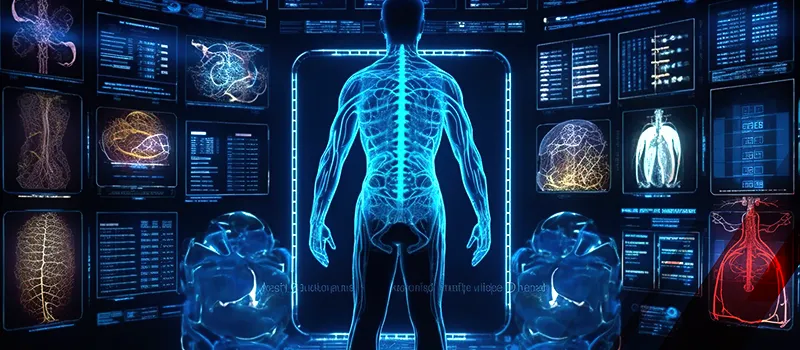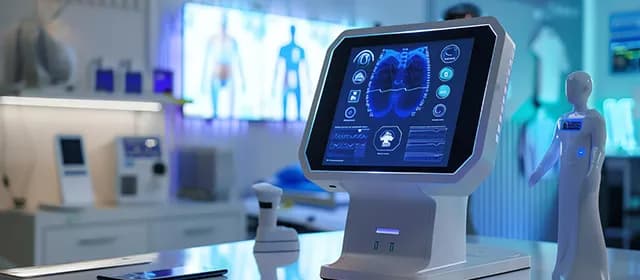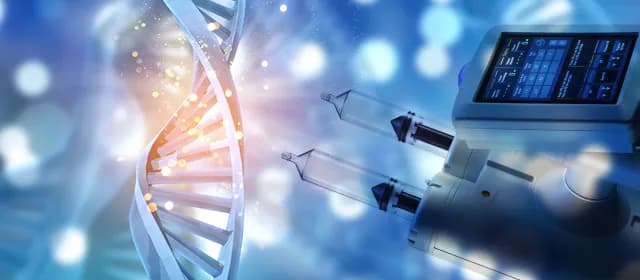In the age of data-driven healthcare, cutting-edge technology emerges as a game-changer, reshaping human well-being through the power of information and innovation. Welcome to health informatics, a powerful catalyst that is transforming the landscape of healthcare. From revolutionizing patient care to unlocking new frontiers in medical research, this revolutionary technology is the driving force behind tomorrow's healthcare solutions.
So, let's dive in to understand how this cutting-edge technology redefines the future of healthcare.
What is Health Informatics?
Health informatics, or health care informatics, integrates data analytics with healthcare systems to enhance patient care, modernize treatment plans, and mitigate the risk of public health outbreaks.
Healthcare informatics helps to improve human health by using biomedical data for scientific inquiry, problem-solving, and informed decision-making. Technological advancements and confidentiality requirements create a need for healthcare informatics specialists.
Its unique skill set and high demand for jobs make it a lucrative field, offering typical career paths and ample opportunities for professional growth. According to a recent study by Kings Research, the global health informatics market is expected to reach USD 101.34 billion by 2030, growing at a compound annual growth rate (CAGR) of 12.50% from 2023 to 2030.
What are Various Types of Health Informatics?
Health informatics encompasses a range of sub-disciplines, each targeting different aspects of healthcare and information management. Some common types of healthcare informatics include:
- Clinical Informatics: Clinical informatics professionals use data and technology to support clinical decision-making and improve patient care. They work on integrating electronic health records (EHRs), clinical decision support systems, and other tools to enhance healthcare delivery.
- Consumer Health Informatics: This field focuses on empowering individuals to manage their health and make informed decisions. Consumer health informatics involves the use of technology to provide health information, track personal health data, and facilitate communication between patients and healthcare providers.
- Nursing Informatics: It combines nursing science, computer science, and information management to optimize nursing practice and patient outcomes. Nursing informaticists work on developing and implementing systems that support nursing documentation, patient monitoring, and care coordination. The National Institute of Health recommends that nurses use nursing informatics to acquire the appropriate knowledge to provide quality health care while enhancing collaboration.
- Pharmacy Informatics: Pharmacy informatics involves the use of technology and information systems to support medication management and optimize pharmacy operations. It includes tasks such as medication order processing, drug utilization review, and medication safety monitoring.
- Public Health Informatics: It focuses on utilizing information and technology to improve population health outcomes. It involves the collection, analysis, and interpretation of public health data for disease surveillance, health promotion, and policy development. To support this technology, the World Health Organization (WHO) has developed a global strategy for 2020–2025 focusing on digital health, aiming to enhance universal health coverage, improve health outcomes, and strengthen public health systems.
- Biomedical Informatics: Biomedical informatics combines biological and health sciences with computational and information sciences. It focuses on managing and analyzing large-scale biomedical data, such as genomics, proteomics, and clinical research data, to advance biomedical research and healthcare. To cite an example of it, the NIH in the United States, through its National Library of Medicine (NLM), conducts research and guides biomedical informatics. The NLM focuses on gaining knowledge in areas such as computational biology, health data science, and informatics standards.
How Does Health Informatics Benefit the Overall Healthcare Systems?
The benefits of healthcare informatics systems are numerous and have a significant impact on healthcare systems, providers, and patients. Some of the key benefits include:
- Improved Patient Care
Healthcare informatics improves healthcare by providing comprehensive patient information, enabling accurate diagnoses, and creating personalized treatment plans. It helps in the improvement of overall patient care through the sharing of medical records and test results.
- Enhanced Efficiency and Coordination
This technology streamlines administrative tasks, freeing up time for healthcare providers to focus on patient care. It also promotes better coordination among teams, resulting in smoother workflows.
- Reduced Errors and Costs
By digitizing and automating processes, health informatics systems minimize the risk of errors in data entry, medication administration, and treatment planning. This not only improves patient safety but also reduces healthcare costs associated with preventable errors and adverse events.
- Improved Public Health Surveillance
Healthcare informatics is crucial for public health surveillance, collecting and analyzing population-level health data to detect disease outbreaks, identify trends, and implement targeted interventions.
- Enhanced Patient Experience
It enhances patients' experiences by enabling them to access their health information and participate in healthcare decisions. It allows patients to view and track their health records and metrics through online masters in healthcare informatics and communicate with providers securely.
Wrapping it Up
In the era of information and innovation, health informatics emerged as a game-changer that redefined human well-being. This cutting-edge technology unlocks the true power of data, algorithms, and cutting-edge innovations to efficiently diagnose, treat, and prevent diseases in the healthcare sector. From enhancing patient care to strengthening public health surveillance, an online master's in healthcare informatics offers various benefits to patients, empowering personal health care. Health information helps health providers and healthcare systems enhance their workflows to make them more efficient and patient-centered.

.webp&w=3840&q=75&dpl=dpl_HkC6vhtovZ9gdp5f4CCyQszcdnYs)

